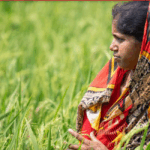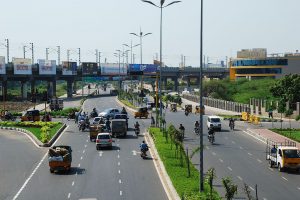The fast depleting Western Ghats, a unique ecosystem in the world that stretches across six Indian states, Gujarat, Maharashtra, Goa, Karnataka, Kerala and Tamil Nadu encompassing 1.60 sq km is in dire need of protection and preservation. The Madhav Gadgil Committee or the Western Ghats Ecology Expert Panel (WGEEP) Report that is made available on the website of Ministry of Environment and Forests (MoEF) on May 23, 2012 after much pressure from concerned sections, had brought back into focus several critical aspects concerning the Western Ghats, one of the most fragile ecological systems in India. Over the last half a century of unbridled encroachment and plunder by forest mafia, mine-quarry mafia, land and real estate mafias and corporate thugs with the connivance of central and state governments and ruling class parties, more than 40 percent of the forests including very rare flora and fauna of this region which is accorded World Heritage Status by IUCN has been destroyed beyond redemption, even as the Constitutional rights (rights over the forest) of the Scheduled Tribes and Other Traditional Forest-Dwellers are systematically violated.
The WGEEP, in its 510-page report, gives a comprehensive and exhaustive analysis of the environmental problems that beset the entire Western Ghats, and dwells on the ecological significance of the region, impact of encroachment on the indigenous population that survives on resources from the forests, etc., based on scientific studies, public hearings, submissions from the concerned agencies, authorities, peoples’ movements, etc. Though appointed by the UPA government that is fully at the service of corporate interests and pursuing the imperialist-sponsored neoliberal development solely motivated by the greed of corporate finance capital, the Panel’s report contains the most comprehensive and authoritative studies on the ecological aspects of Western Ghats. The panel has designated the entire Western Ghats, spanning 44 districts and 142 talukas over six states, as an Ecologically Sensitive Area (ESA) and assigned it three levels of sensitivity–Ecologically Sensitive Zone (ESZ)-1, ESZ-2 and ESZ-3 of varied ecological sensitivity. It has also suggested broad guidelines for each of these zones including a broad framework for the establishment of a Western Ghats Ecological Authority (WGEA) with adequate legal and administrative powers. For instance, based on the above categorization, among other things, it has recommended that both the Athirappilly project in Kerala and the Gundia hydel project in Karnataka, proposed by the respective state governments and espoused by various parties whether in power or in opposition, should not be provided environmental clearance as they fall in the ESZ-1. For Goa, the panel has recommended an indefinite moratorium on new environmental clearances for mining in ESZ-1 and ESZ-2, and a phasing out of mining in ESZ-3 by 2016. It said existing mining in ESZ-2 should be done under strict regulation with an effective system of social audit. Similar recommendations have been made for power projects and mining in the portions of Sindhudurg and Ratnagiri districts of Maharashtra that fall in the Western Ghats. More specifically, in the case of Chiplun district, the Committee was very critical of the toxic dumping in the area from the Common Effluent Treatment Plant functioning there.
The panel’s recommendations are definitely against corporate grab of land and forests in the Western Ghats region in the name of so called development led by corporate forces. In spite of a series of central acts such as the Wildlife Protection Act of 1972, Water Act of 1974, Forest Protection Act of 1980, Environment Protection Act of 1986, etc., according to the Panel, laxity on the part of authorities ranging from central and state governments to local bodies have led to irreparable damage to this eco-region and the ‘development’ of the region was socially inequitable and ecologically unsustainable. The Committee has also pointed out “severe violations of human liberty and rights” by vested interests and has even questioned the “systematic suppression” of what it calls “civil right expression” of people engaging in ecologically sustainable development through the nurturing of natural resources and heritage of the region. The report also alleges that the Environmental Impact Assessments (EIAs) for various projects in the Western Ghats that stretches more than 1500 km from Gujarat to the southern-most tip of India conducted by the central and state governments over the years were flawed due to several manipulations. Quite naturally, all the parties who have ruled or shared power at the centre and states ranging from the Congress and BJP to regional parties and CPI (M) over the years and who are under the pay-rolls, say, of land and real estate mafia in Kerala, mine and forest mafia in Goa, quarry mafia in Karnataka and corporate houses in Maharashtra, etc., have come up united against the Gadgil Report. In view of this opposition from state governments and various ministers in the UPA government itself coupled with acute pressure exerted by corporate mafia, the central government had set up another expert panel headed by K. Kasturirangan, a technocrat to review the Gadgil report. As of now the Kasturirangan committee is touring the states seeking opinion especially from vested interests and from state legislatures in order to nullify or to dilute whatever pro-nature and pro-people recommendations in the Gadgil report. However, against this unholy ruling class and corporate mafia nexus, growing support for the immediate implementation of the Gadgil proposals is emerging from progressive democratic forces, peoples’ movements and concerned intellectuals from this region.
Today, one of the worst and most ugly forms of this mafia axis against Gadgil report has emerged in Kerala. There, with the patronage of the Catholic Bishops’ Council of India (CBCI) and along with the naked intervention of the entire clergy of Kerala Catholic Church, which in the specific historical context of Kerala has become the leading material and spiritual force behind the flourishing land mafia, education mafia, hospital mafia and above all speculative mafia in the state, corporate capital has come out in the open forging an unholy alliance not only with ruling Congress-led UDF but even the CPI(M) against the Gadgil Report. As a consequence, the Kerala Assembly through a unanimous resolution has rejected the Gadgil report on the preservation of the unique ecosystem of the Western Ghats. The Resolution fears that the recommendations and restrictions on development activities in the new zones notified as ‘ecologically fragile’ will impact on growth, as there is a lot of pressure on lands in Kerala. It alleges that many of the areas mentioned by the committee as ecologically fragile are already being occupied by a growing population. But it should unequivocally be pointed out that this love for the people and development is only a cover for the unabated aggressive encroachment of huge patches of land by the mafias of all hues who enjoy widespread political and religious support in the state, as not only ordinary peasants but also forest tribes, who are the real nurturers of the ecosystem of the Western Ghats, are completely driven out from their habitat by the land mafia. In this regard, the Catholic Church, the ruling Congress, Kerala Congress which is the party primarily of Christian land grabbers and the opposition CPI (M) which, with its ideology of mechanical materialism, has become compradors to the biggest land mafia in the state such as Tata, Goenka, etc., irrespective of their apparent political differences, are hand in glove in spreading panic and scare among the people against the Gadgil Report. As a matter of fact, the Gadgil Report is an “official report” submitted by a committee of experts appointed by the central government as per law. But K M Mani, the present finance minister of Kerala and open champion of the Christian land grabbers in Idukki and Wayanad districts which belong to the Western Ghats, even violating his Constitutional responsibilities, has burst out in the open characterizing the Gadgil report as a “mad report”. Former electricity minister of Kerala, A K Balan of the CPI (M), who was relentless in his campaign for the Athirappally power project during the previous LDF government, alarmingly told the Kerala assembly that 15 talukas in the state would be listed ecologically fragile if the Gadgil Committee recommendations were to be accepted and implemented in full.
Ironically, both the Catholic Church and the CPI (M) have alleged that deep-seated foreign interests with ulterior motive of thwarting Kerala’s development potential are working behind the Gadgil Report, smacking of Manmohan Singh himself who alleged the involvement of American-funded NGOs in the people’s movement against Kudamkulam nuclear plant. While Manmohan makes such a comment, as everyone knows, the sky-rocketing in the number and operation of imperialist-funded NGOs in India has taken place as an inalienable component of the last two decades of Manmohanomics. In this context, it is to be reiterated that regarding foreign funds and imperialist subservience, the Catholic Church in Kerala has already earned a notoriety of its own since colonial times which, in the neocolonial period, got an added momentum starting with the CIA-funded Liberation Struggle of 1959. Compared with the other religious fundamentalists, today the Christian Church in Kerala receives proportionately larger foreign funds and several foreign funded NGOs are Christian affiliated. The Catholic Church which has well-entrenched and deep-rooted mafia interest pertaining to land in Western Ghats is most heinously utilizing even pastoral letters to manipulate public opinion against the Gadgil recommendations. In the third week of December, 2012, Catholic bishops belonging to the Kerala chapter of the CBCI convened a big convention at Cochin in which they formed a Western Ghats People’s Forum led by the clergy to build up resistance against the Gadgil proposals. The case of CPI (M) which makes a hue and cry of foreign funds is also not different. It has already been well documented that the designing of the blue-print and test rehearsal that led to the People’s Planning initiated by the CPI (M) as a postmodern alternative and as an integral part of World Bank’s “participatory development” during its Kerala rule in the late nineties were based on the intellectual and financial resources from American and Dutch imperialist sources. Therefore, ranging from Manmohan Singh and Catholic mafia to the CPI (M), NGOism and foreign funding are bogies effectively used by ruling clique to divert people from core issues and at the same time exploit their anti-imperialist sentiments. Utilizing the corporate media in Kerala, all the above said forces are working overtime to discredit the Gadgil Report by calculatedly propagating the alleged foreign and NGO connections of the members of the Gadgil Committee. Of course, the over-enthusiasm on the part of well-known foreign-funded NGOs and the foreign connections of their leaders to project the Gadgil Report as a panacea for all the ecological and developmental problems of Western Ghats in an apolitical way has indirectly enabled the politician-bureaucrat-corporate- religious mafia nexus bent on plundering the Western Ghats to discredit it with allegations of foreign interests. This once again calls for urgent intervention on the part of progressive and democratic forces who have an anti-imperialist people’s development perspective and scientific approach to nature and who alone can put the Gadgil Report in the proper perspective.
As far as Kerala is concerned, this united opposition to the Gadgil Report by the entire ruling spectrum including the CPI (M) which has already degenerated to ruling class positions is not an overnight development. It began in 2010 when the MoEF has asked the Gadgil panel to study the environmental impact of the Athirappally hydro-electric project in Chalakkudy river, proposed by Kerala State Electricity Board (KSEB) and the CPI (M) led state government which was strongly opposed by CPI (ML) and various people’s organizations in the state. The central government was also compelled to take such a decision as the environmental clearance for the project was challenged in the High Court of Kerala by the local gram panchayat, the Kadar Community, an indigenous tribe living in the region and above all by the Kerala State Biodiversity Board (KSBB), a statutory body of the government. The committee, as part of its study, visited the proposed project site, the reservoir area, primitive settlements and their surrounds, the downstream major irrigation project site, etc., on January 29, 2011. It held consultations at various levels, including with representatives of the primitive Kadar tribe, the local gram panchayat of Athirappally, and the general public that had responded to the WGEEP’s press note inviting public comments. In addition, the Committee organised a technical consultation attended by experts from the KSEB, KSBB, Chalakkudy Puzha Samrakshana Samiti (Chalakkudy River Protection Committee), River Research Centre, Kerala Forest Research Institute (KFRI), Tropical Botanical Garden and Research Institute (TBGRI), National Conservation Foundation (NCF), officers and experts from the government departments of irrigation, tribal development, forests and wildlife, tourism, and staff officers associations like the KSEB Officers Association, and so on. The committee examined earlier reports and court documents, minutes of the three public hearings, EIA reports of 1996 and 2002, etc. The Panel made a comprehensive study of the project taking into account several aspects of vital importance such as biodiversity, impact on ecology, impact on drinking water and agriculture downstream, and impact on tribal populations in the region, besides considering the technical feasibility of the project, which itself had been challenged by various expert groups.
Based on the data/evidence it gathered, the Panel rejected the Athirappally project and among other things opined: “The riparian vegetation in the Chalakkudy river system is unique in that there is no such riparian vegetation at such low elevation anywhere else in the Western Ghats, especially in Kerala.” The riparian vegetation in the proposed dam site contains 155 species of endemic plants and more than 33 species of plants belonging to rare, endangered, and threatened categories according to the IUCN. The study also found this is an area unique for bird conservation. Of the 486 species of birds recorded in Kerala, 234 have been sighted in the Athirappally area. The Chalakkudy river is known for its rich fish diversity: out of 210 species of freshwater fish found in Kerala, the river hosts 104 species, 22 of them listed as endangered and nine critically endangered, according to the IUCN red data book. Building a dam on the river would destroy the fish habitat and also hamper migration, as some species migrate upstream and some downstream to complete their annual lifecycle. Following the Gadgil panel suggestion, the central government was forced to abstain from issuing green signal for the project. In view of the abundance of fish species and their unique nature, the National Bureau of Fish Genetic Resources has also recommended the Chalakkudy river be declared a fish sanctuary.
From that time onward, the land-forest-contractor mafia with the backing of above said vested interests was spreading various rumours and misleading information about the Gadgil Panel. And the CPI (M) was in the forefront of this vilification campaign. It was only since the mid-2012 when the Gadgil Report finally came out that it got a strange bedfellow, the Catholic Church, which has been the biggest gainer of the land reforms initiated by the first EMS ministry in 1957. Along with the incessant encroachment of forest land by the catholic mafia, according to reliable information, the very same section has in its possession more than 200000 acres of reserve forests in Idukki district alone which were leased out by government for cardamom cultivation. The lease period of such government land being already over, this mafia is not prepared to vacate from such lands. The 81 sq. km. ecologically sensitive area now specifically demarcated by Gadgil panel encompasses this reserve forest too. One of the immediate goals of the Catholic mafia’s anti-Gadgil campaign is to camouflage this illegal possession from public scrutiny. In its espousal of this cause of the catholic lobby, it is the political opportunism of the CPI (M) that is being exposed more than ever. At the same time, the tourism-real estate mafia in the state also has its strong resentment against the Gadgil Report. Recently, the ruling UDF government has allowed the conversion of 5 percent of the land held as estates for tourism and construction purposes. This will make available around 100000 acres of land for speculative purposes. Since such lands come under the ecologically fragile area, this lobby is also opposing the Gadgil Report tooth and nail.
In a recent interview with presspersons, the WGEEP Chairman Madhav Gadgil himself has said that the opposition to the report was due to some ‘inconvenient truths’ it brought out. He also alleged the lack of interest on the part of central and state governments in implementing the laws and regulations pertaining to biodiversity and ecology. Meanwhile, as already noted, the Kerala Assembly, displaying a unique and whole-hearted unity of both the Congress led UDF and CPI(M) led LDF through a substantive motion approved unanimously after a three-hour debate has requested the central government to drop the “impractical” suggestions of the Gadgil Report. The motion also calls for a practical approach to the development of the areas identified by Gadgil panel as ecologically fragile. This initiative for the mafia in Kerala Assembly itself has reportedly enthused corporate mafias in other states too and such forces are now looking towards the Kasturirangan Committee to revoke the major recommendations of the Gadgil Report.
This critical situation calls for resolute action on the part of progressive-democratic forces having an objective understanding on the ecological catastrophe as one inseparable from the accumulation process led by corporate finance capital. Loss of biodiversity, extinction of rare species, water scarcity, destruction of forests, displacement of forest tribes from their habitat, etc., which are mentioned by the Gadgil Report are the direct outcome of the ruthless neocolonial plunder unleashed by speculative capital in the Western Ghats. It is inseparably linked up with the broader ecological and environmental crisis under neoliberalism. However, the NGOs and funding agencies on account of their de-politicization, are reluctant to situate the crucial questions of ecological devastation in the laws of motion of finance capital today. While parroting the catchword ‘sustainable development’, they keep silence on the neocolonial economic and political relations behind the non-sustainable plunder of nature by finance capital. Such NGOs who safely ignore the manner in which all the technological advances are utilized for corporate class interests, despite their rhetoric in favour of Gadgil report are basically incapable for providing the badly needed ideological-political orientation required for a people’s alternative. As already referred, it was easy for the corporate mafia to overcome the attempt on the part of certain NGO leaders in Kerala to project themselves as champions of Gadgil Report as the latter amounted to petti-bourgeois lamenting at the consequences of environmental catastrophe without going into its root causes. Therefore, it is highly imperative on the part of revolutionary working class leadership in alliance with all democratic forces and peoples’ movements to come to the fore and to initiate a broad-based discussion on the Gadgil Report at the all India level as part of the long-term task of overthrowing the hegemony of parasitic finance capital over nature. This task is all the more significant today as, compared with any time in previous history, ecology has come to the centre-stage and according to the concrete conditions of today a harmonious co-evolution of nature and human society has become the indispensable component of the struggle for building an egalitarian social order and the move towards socialism.


















